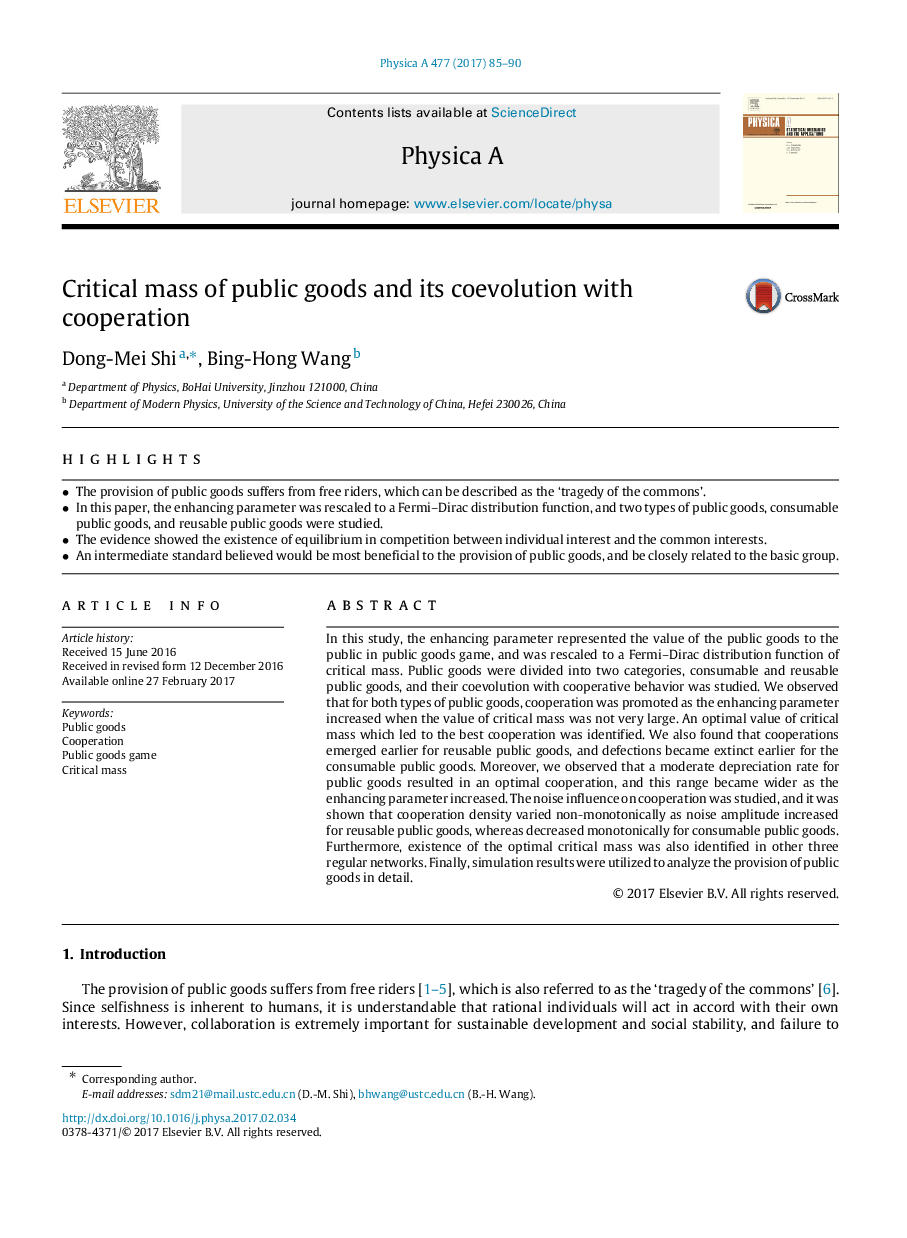| Article ID | Journal | Published Year | Pages | File Type |
|---|---|---|---|---|
| 5103186 | Physica A: Statistical Mechanics and its Applications | 2017 | 6 Pages |
Abstract
In this study, the enhancing parameter represented the value of the public goods to the public in public goods game, and was rescaled to a Fermi-Dirac distribution function of critical mass. Public goods were divided into two categories, consumable and reusable public goods, and their coevolution with cooperative behavior was studied. We observed that for both types of public goods, cooperation was promoted as the enhancing parameter increased when the value of critical mass was not very large. An optimal value of critical mass which led to the best cooperation was identified. We also found that cooperations emerged earlier for reusable public goods, and defections became extinct earlier for the consumable public goods. Moreover, we observed that a moderate depreciation rate for public goods resulted in an optimal cooperation, and this range became wider as the enhancing parameter increased. The noise influence on cooperation was studied, and it was shown that cooperation density varied non-monotonically as noise amplitude increased for reusable public goods, whereas decreased monotonically for consumable public goods. Furthermore, existence of the optimal critical mass was also identified in other three regular networks. Finally, simulation results were utilized to analyze the provision of public goods in detail.
Related Topics
Physical Sciences and Engineering
Mathematics
Mathematical Physics
Authors
Dong-Mei Shi, Bing-Hong Wang,
